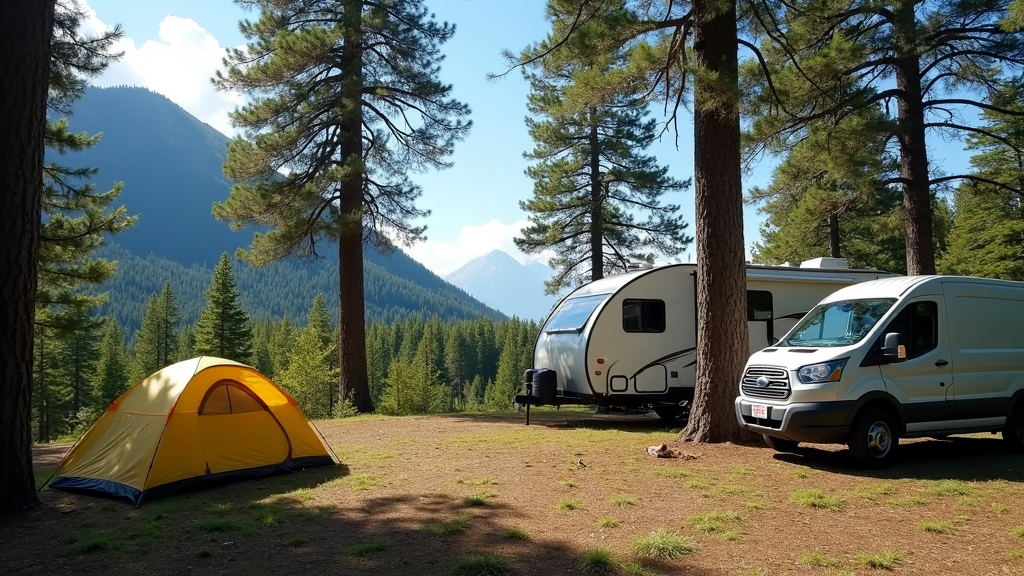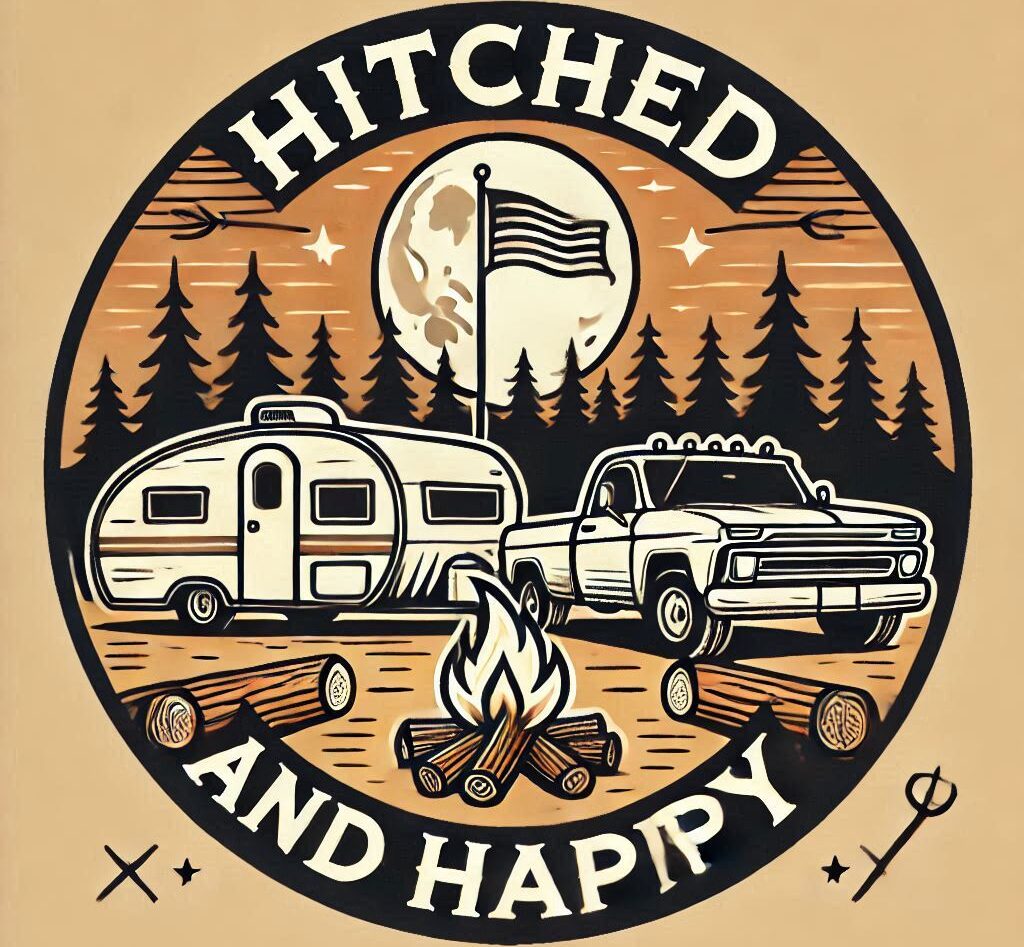Tent camping and RV camping offer two totally different approaches for getting outside, and I’ve found plenty to love about both types depending on the adventure I’m after. Whether you’re excited about waking up to the sound of birds outside your tent or you’d rather have access to a warm bed, kitchen, and bathroom on wheels, picking your camping style really depends on what you value during your time outdoors. I’ll break down the pros and cons of tent camping and RV camping, give my personal perspective, and share practical tips to help you figure out which one is right for you.

Comparing Tent Camping and RV Camping: The Basics
Both tent camping and RV camping have strong communities and plenty of loyal fans. Tent camping typically means you’ll set up a fabric shelter at a campsite, slip into a sleeping bag on a pad or cot, and find yourself right in the middle of nature. RV camping, on the flip side, gives you a home on wheels—anything from compact campervans to massive motorhomes loaded with features.
Tent camping has a long history—people have camped in tents for thousands of years across the globe. RVs are a newer phenomenon, gaining popularity in the last hundred years, but now they’re common at campgrounds and parks everywhere.
According to the 2023 North American Camping & Outdoor Hospitality Report from KOA, more than 93.8 million North American households consider themselves campers, and over 15 million of those camp in RVs each year. Tent camping still tops the charts by numbers, but RV camping has gained traction since 2020.
The Tent Camping Experience: Simple and Adaptive
Tent camping usually conjures up the classic image of camping. You pick your site, roll out your tent, and set up just steps from your campfire. People are drawn in by the strong connection to nature, the straightforward simplicity, and the lightweight feel compared to bigger rigs.
- Flexibility: Tents are lightweight and simple to move. I can hike into the backcountry with all my gear or toss a tent in the trunk for a quick trip to a state park. As long as you’re able to hike, there are very few limits on where you can set up camp.
- Cost: Getting started with tent camping is easier on the wallet than RV camping. Even a high-end tent is much less expensive than buying a camper or RV, and camping fees are usually lower or even nonexistent if you go for dispersed camping on public lands.
- Simplicity: There’s real beauty in the basics. Just a tent, your sleep setup, and some essential kitchen gear—you’ll get the chance to unplug and really soak up the outdoors.
Tent camping isn’t always cozy and relaxing. Wild weather, bugs, or chilly nights can add serious challenges. Even top-notch gear can’t guarantee you’ll be totally comfortable, especially during storms. It also takes time and some experience to set up and take down camp, plus waking up early might be necessary to beat the sun or pack up before everything gets damp.
The RV Camping Experience: Comfort and Convenience on Wheels
RV camping brings a different layer of travel, especially for families, older campers, or anyone who loves more comfort. RVs offer shelter, controlled temperatures, a kitchen, and often a real bathroom, letting you camp with many of the comforts from home. The focus is less on “roughing it” and more about exploring from a cozy base.
- Comfort: Having a real bed to crawl into after a full day outside is a treat. Refrigerators, stoves, and running water all add peace of mind.
- Convenience: RVs shine on longer trips. There’s no need to set up camp in the rain, and moving between sites is easier because you pack and unpack only once.
- Accessibility: Traveling with pets, little kids, or people with mobility needs is far smoother in an RV. Muddy ground or rocky campsites don’t slow you down much when you have a hard floor and built-in amenities.
Still, RV camping has its headaches. Campsite fees and parking are pricier, driving and maneuvering a big rig takes practice, and maintenance is a constant part of RV life. Plus, RVs can’t reach every dreamy campsite—many wild spots are off-limits if you can’t get your wheels in. Gas, repair costs, and storage fees are real expenses, too.
What to Consider When Choosing Your Camping Style
Your choice depends on your budget, comfort needs, sense of adventure, and personal goals. Here are some key things I like to keep in mind:
- Budget: Tent camping fits most budgets, with cheaper gear and campsite prices. RV camping means a higher upfront investment and ongoing expenses for fuel, maintenance, and site fees.
- Flexibility: Tent camping fits into nearly any terrain, from car-accessible campsites to deep backcountry. RVs need established sites with space and, often, hookups. This means fewer site choices overall.
- Weather: Tents can be tough in wind and rain. RVs shield you from storms and drop temperatures, but you’ll miss out on the natural sounds and fresh air sometimes.
- Travel Group: Tent camping usually works best with small groups or solo travelers willing to handle a little dirt and discomfort. With families or friends with different comfort levels, an RV can keep the adventure enjoyable for everyone.
- Set-Up Effort: You’ll spend more time setting up and packing away tents, especially in bad weather or the dark. RVs simplify life—park, connect, and you’re done.
Challenges of Tent Camping
Even seasoned tent campers face obstacles. Being prepared really pays off:
Weather Woes
Rain, snow, and high winds spell trouble for tent campers. I always stash extra tarps, use a ground cloth, and pack a good rainfly—but even then, sometimes things end up wet. Cold weather requires a solid sleeping bag and warm clothing, too.
Physical Demands
Sleeping on the ground, hiking in gear, and hauling things to your site can be tiring and might not suit everyone. Those with physical limitations may struggle with the demands of tent camping.
Lack of Amenities
Without running water, a fridge, or electricity, camping is stripped down to the basics. That lack of convenience makes showers or hot meals back home feel even better after a tent trip.
Challenges of RV Camping
RV life isn’t always smooth sailing. Here are some common hurdles:
Maintenance and Repairs
From water leaks to tricky electrical issues or the occasional engine glitch, keeping up an RV is real work. Replacement parts, and hiring help if you aren’t handy, can be expensive.
Travel Restrictions
RVs can’t handle narrow, winding backroads or remote forest tracks. Finding a spot with the right hookups sometimes means booking ahead, especially during busy travel seasons.
Higher Costs
Between the up-front purchase price, gas, insurance, campground fees, and maintenance, RV camping is a bigger investment. You’ll also want a plan for off-season storage if your driveway isn’t an option.
Tips for Making the Right Choice
- Try Both: Rent an RV or borrow a tent before making a big purchase. Personal experience beats reading reviews every time.
- Start Small: Begin with a short weekend trip close to home to test comfort levels and figure out what you like.
- Prioritize Comfort or Adventure: If you love getting off-grid with minimal stuff, tent camping gets you there. If you want easy meals and cozy beds, RV life might win you over.
- Plan for the Weather: Check the forecast before your trip. Tents work best in mild conditions, while RVs make bad weather less of a hassle.
Frequently Asked Questions
Over time, I’ve heard plenty of fellow campers and newcomers ask about which style to choose. Here are answers to the questions people ask most often:
Question: Which is more affordable, tent camping or RV camping?
Answer: Tent camping usually costs less—startup gear and campsites are less expensive. RVs cost more upfront and come with added fuel, maintenance, and campground expenses.
Question: Is tent camping suitable for families with kids, or is RV camping safer?
Answer: Both work for families. RVs make traveling with kids much easier thanks to beds, kitchens, and bathrooms. Tent camping works too, if your kids are ready for sleeping outdoors and you choose kid-friendly gear.
Question: Which camping style gives a stronger connection with nature?
Answer: Tent camping wins if being close to nature is the goal. You’ll hear wildlife and watch the sun come up right outside your door; RVs are more comfortable but a bit removed from the direct outdoor experience.
Question: Do you need special insurance or licenses for RV camping?
Answer: RVs require vehicle registration and special insurance (exact needs depend on your RV type and your location). Most drivable RVs only need a regular driver’s license, though you should check your state’s rules. Rentals often include basic insurance coverage.
How I Choose Between Tent Camping and RV Camping
The decision depends on the season, the destination, who’s in my group, and how much comfort I’m seeking. If I want a true backcountry adventure, going solo or with a small group, tent camping suits me best. When I’m headed on a big family trip or planning a longer road trip, the RV’s extra comfort and space really shine. There’s a place for both in my camping life, and sometimes mixing it up—like tent camping with friends one weekend and an RV trip the next—keeps things interesting.
What matters is finding what fits you, your crew, and your goals. There aren’t any rules: plenty of people fall in love with different styles depending on the trip. Checking out both options builds confidence, grows your skills, and means you’ll have the tools to make every adventure your own.
Happy camping, whichever way you roll!
